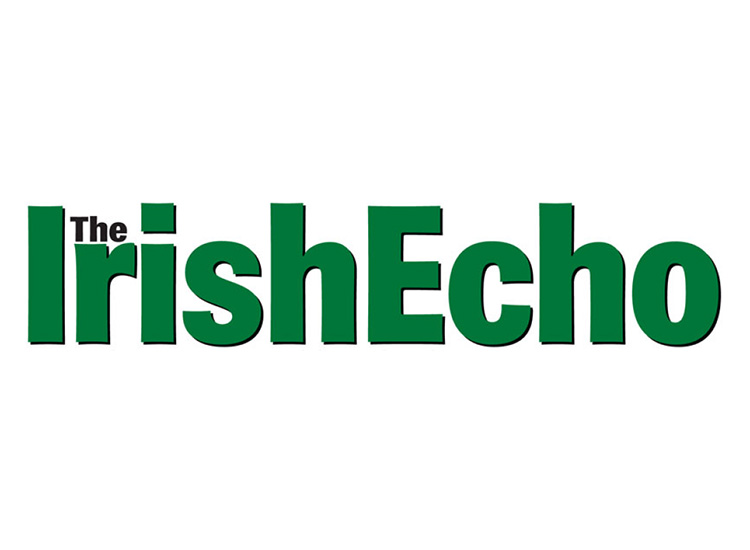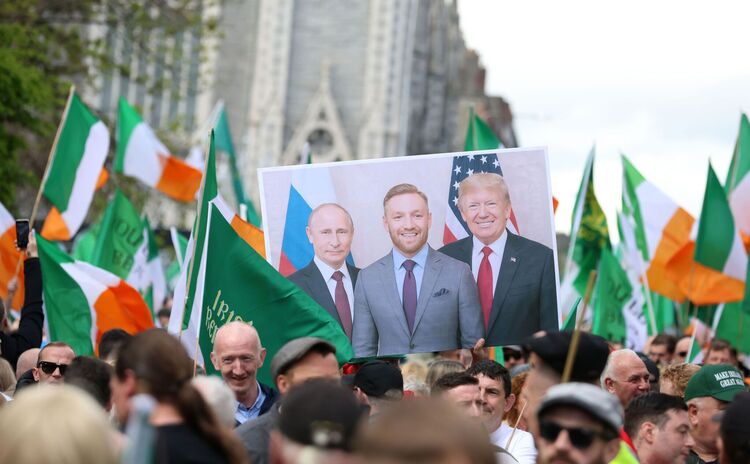By Scott Jamison
[caption id="attachment_22076" align="aligncenter" width="300" caption="A scene from last Saturday's Irish Congress of Trade Unions-organized march in Dublin"]
One of the most turbulent weeks in Irish history has been underlined by an unprecedented €85 billion bailout from the European Union and the International Monetary Fund.
But a political row over the precise legal status of the bailout has raised the Republic's political temperature even as the meteorological one is plunging.
The rescue package, which has attracted global press coverage, was accepted by the government and just as quickly questioned by opposition parties. In addition, tens of thousands of people who marched in Dublin to voice their anger and frustration over the state of the economy and with government leaders.
Finance ministers from across Europe converged on Brussels Sunday to agree the final terms of the bailout, with the emergency meeting being attended by representatives from the 16 eurozone nations, plus those from the three countries that have agreed to provide bilateral loans as part of the rescue plan - Britain, Sweden and Denmark.
The Irish government will get a loan contingency of about €50 billion and a further €35 billion will be extended to support the country's ailing banks. Although it has yet to be confirmed, some sources have reported the country may have to pay a rate as high as 6.7 percent on some of the money.
Taoiseach Brian Cowen was faced with questions over the legal status of the plan as the Dáil met on Tuesday. Speaking ahead of the meeting, the Labor Party's Pat Rabbitte claimed the government might be acting in breach of Article 29 of the Constitution by proceeding with the bailout.
Fine Gael has said it has not yet decided whether to back next week's crucial budget after reports it was prepared to torpedo the mooted €6 billion in cuts proposed by its Fianna Fáil/Green coalition rivals.
Fine Gael's finance spokesman, Michael Noonan, denounced the conditions imposed by the IMF and the European Central Bank saying he was particularly angry over the IMF/EU "insistence" that Ireland pay over €17 billion out of its national pension fund to shore up the country's banks.
"I believe the negotiators on the Irish side were soft," Noonan said.
"They have given up €17.5 billion of our own resources in sacrificing all of the national pension reserve fund. The fund has been cleaned out. The interest rate is extremely high. If the IMF part is just over three percent as reported, it must mean the average EU interest rate must be very high, well over 5.8 percent."
The two party coalition must pass the Dec. 7 budget if it is to remain in power, but it now is relying on two independent deputies for its majority in the Dáil. Labor and Sinn Féin will definitely vote against the budget.








